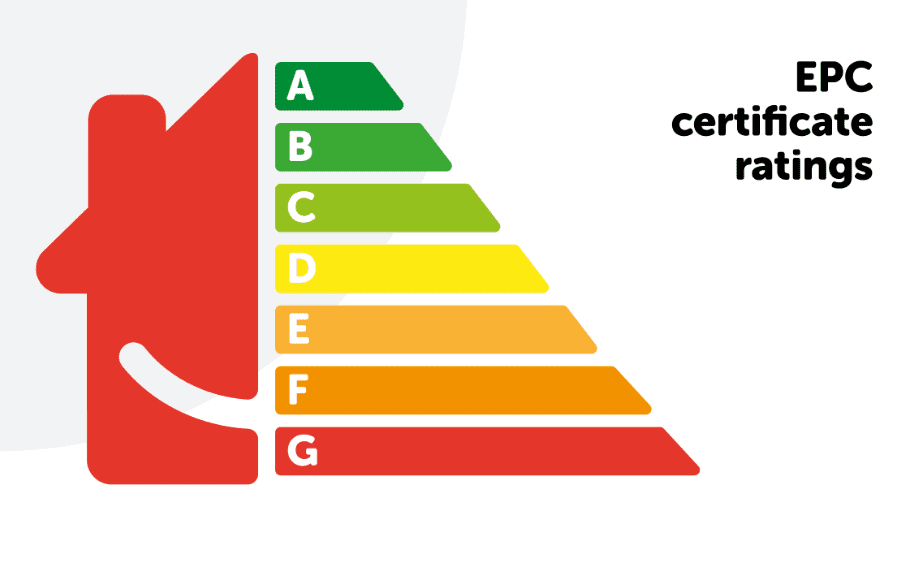
Government’s U-Turn on Proposed EPC Rules for Rental Homes: What Does It Mean for Landlords and Tenants?
In a surprising move, the government has announced a U-turn on its proposed Energy Performance Certificate (EPC) rules for rental homes. Originally set to be introduced as part of a broader effort to improve energy efficiency and reduce carbon emissions, these rules were met with mixed reactions from landlords and tenants alike. This sudden change in direction raises important questions about the implications for both landlords and tenants and the broader impact on the housing market and the environment.
The Original Proposal
The government’s original proposal aimed to raise the minimum EPC rating for rental properties from an E rating to a C rating by 2025. This ambitious target was part of the government’s commitment to combat climate change and reduce the carbon footprint of residential properties. Landlords were facing the prospect of making significant investments in their properties to meet these new standards, including improving insulation, upgrading heating systems, and implementing energy-efficient measures.
Landlords’ Concerns
Many landlords expressed concerns about the financial burden of meeting the proposed EPC standards. They argued that the cost of making necessary upgrades could be prohibitively high, especially for those with older properties or limited financial resources. Some landlords worried that they might have to pass these costs onto tenants in the form of higher rents, potentially exacerbating the already challenging issue of affordable housing.
Additionally, there were concerns about the practicality of achieving higher EPC ratings for certain properties, particularly historic or listed buildings, where extensive modifications might not be feasible without compromising the property’s architectural integrity.
Tenants’ Expectations
On the other side of the debate, tenants generally welcomed the government’s original proposal. Many saw it as a necessary step to improve the quality of rental properties and reduce energy bills. Higher EPC ratings would mean better insulation and more efficient heating systems, resulting in lower utility costs for tenants.
Tenants also viewed these regulations as a means to address issues related to energy poverty, where households struggle to afford adequate heating during the winter months. By improving the energy efficiency of rental homes, tenants hoped to see a reduction in fuel poverty and improved living conditions.
Government’s U-Turn
The government’s decision to U-turn on the proposed EPC rules comes as a surprise to many, given the urgency of addressing climate change and improving the energy efficiency of the housing stock. The primary reason cited for this change in direction is the recognition of the financial challenges faced by landlords.
Impact on Landlords
Landlords can breathe a sigh of relief as they no longer face the imminent financial pressure of meeting higher EPC standards. This U-turn means that they can avoid costly upgrades and continue to operate their rental properties without major alterations. However, it is essential for landlords to remain aware of any future changes to energy efficiency regulations, as the government may revisit this issue in the coming years.
Impact on Tenants
While landlords may be relieved, tenants who were looking forward to more energy-efficient homes may be disappointed by this decision. The U-turn means that they will continue to live in properties that may not meet their expectations in terms of energy efficiency and lower utility bills.
Environmental Concerns
One of the significant consequences of this U-turn is its potential impact on the environment. Higher EPC ratings are essential for reducing carbon emissions from residential buildings, which account for a significant portion of the UK’s total emissions. Delaying improvements in energy efficiency could hinder the country’s progress toward its climate goals.
Conclusion
The government’s U-turn on the proposed EPC rules for rental homes has created a complex situation with various implications. While landlords may be relieved about avoiding costly upgrades, tenants and environmental advocates are left disappointed. It remains to be seen whether the government will introduce alternative measures to address energy efficiency and carbon emissions in the rental sector. Regardless of the current decision, the importance of improving the energy performance of homes for the benefit of both tenants and the environment cannot be ignored. Landlords, tenants, and policymakers must continue to engage in constructive dialogue to find balanced solutions that promote energy efficiency without unduly burdening property owners.
For more information on ‘Landlords & Tenants Resources’, please visit:
https://cymrumarketing.com/landlords-and-tenants-useful-links/
EPC Assessors Directory (Wales)
https://cymrumarketing.com/epc-assessors-wales-directory/
Further Reading
- Government u-turn on proposed EPC rules for rental homes: What does it mean for landlords and tenants? (msn.com)
- Government u-turn on proposed EPC rules for rental homes: What does it mean for landlords and tenants? | This is Money
- Government to abandon landlord EPC rules – PropertyWire
ADVERTISEMENT

#landlords #landlordsandtenants #epccertificates #epcrating #rentincreases #rentersreformbill

Andrew Jones stands as a veteran journalist celebrated for his profound expertise in the realms of current affairs, politics, and health reporting. With an illustrious career spanning over two decades, he has firmly established himself as a trusted and authoritative voice in the field, consistently delivering astute analysis and thought-provoking commentary on some of the most pivotal issues of our time.
From an early age, Andrew's fervor for journalism was unmistakable, and he pursued this calling with unwavering commitment. He meticulously honed his skills and deepened his knowledge through rigorous education and hands-on experiences, solidifying his status as the go-to source for news outlets seeking comprehensive and meticulously researched articles.
Throughout his journey, Andrew has contributed significantly to distinguished newspapers and magazines, leaving an indelible imprint on the media landscape. His work has graced the pages of renowned publications, including the prestigious Cymru Marketing Journal (CMJUK), where he consistently delivered thought-provoking pieces that resonated with readers and ignited substantive conversations.
Andrew's reporting style is characterized by an unwavering dedication to impartial, fact-based journalism. He ardently strives to furnish readers with a well-rounded and comprehensive perspective on intricate issues, acting as a guiding light in navigating the complex worlds of current affairs, politics, and health, rendering them more transparent and understandable.











